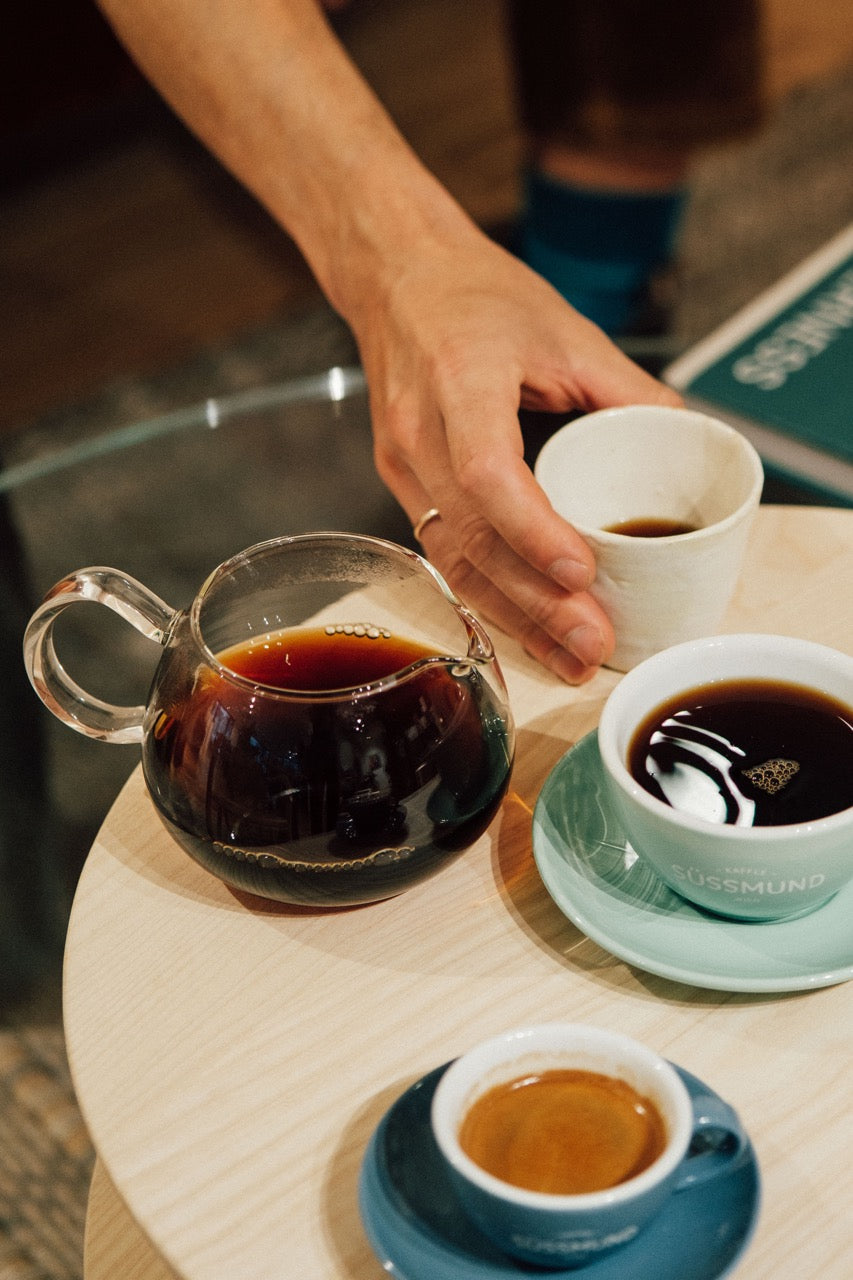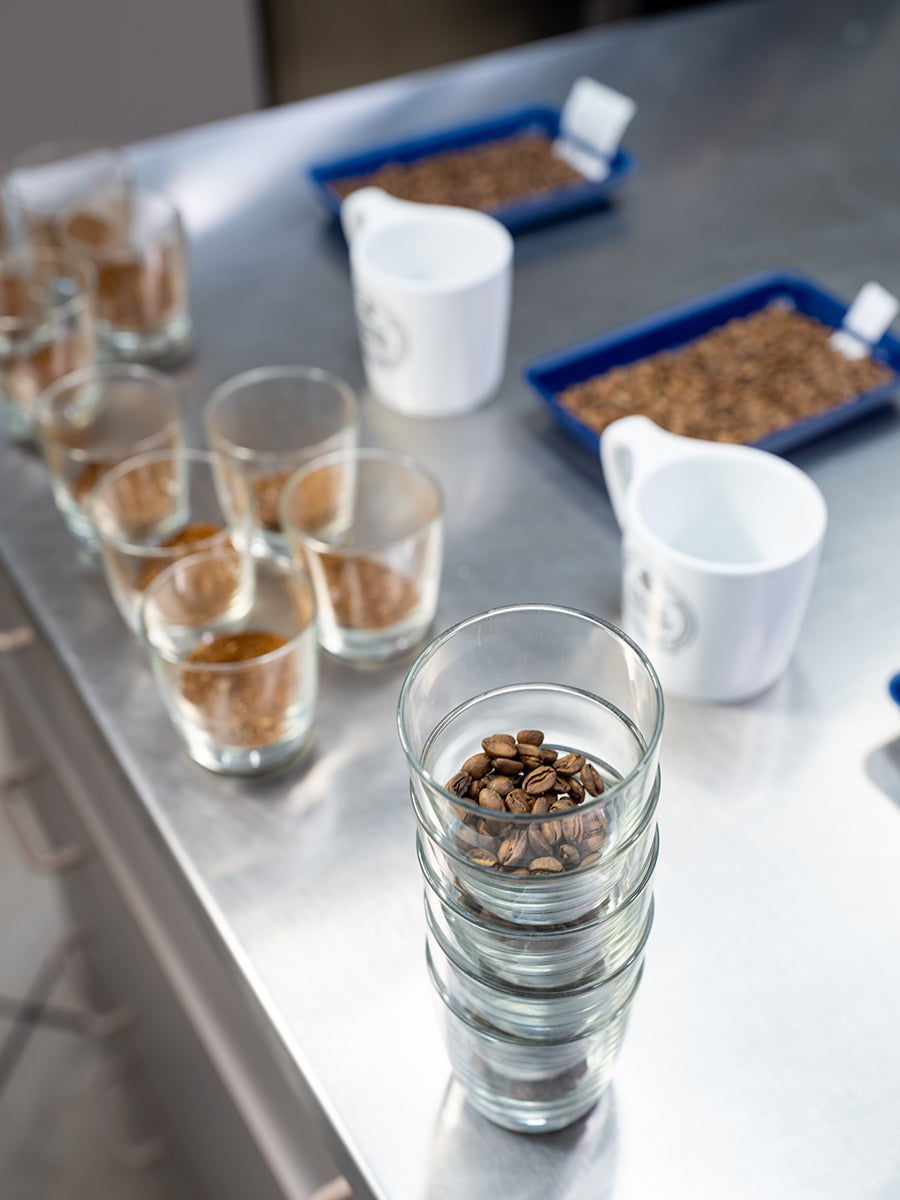This shade-grown organic Arabica coffee is a delightfully nutty, all-day brew. The caffeine was gently extracted using the safe CO2 process before roasting. Aromas of nougat, wafer, and cocoa are accompanied by a light apple note. The medium roast emphasizes this balanced interplay of sweetness, roasted aromas, and acidity.
The Cafeticultores Orgánicos de Oaxaca (Coroax) cooperative was founded in 2012 and consists of 2,000 family-run farms belonging to the predominantly indigenous population of the Oaxaca region. In December 2022, we were able to visit the Coroax and were impressed by the natural beauty of the mountains surrounding Oaxaca City and the warmth of its members. You can read more about our trip in our post on the Coffee Blog.
On average, a family owns around 3 hectares of land in the high mountain regions of the state. Joining forces in the cooperative enables smallholder farmers to improve the quality of their green coffee and market it more effectively.
All of the cooperative's coffee farms follow strict organic farming guidelines. This producer is particularly distinguished by its commitment to preserving the biodiversity of local flora and fauna, as well as fair payment to smallholder farmers. We are particularly pleased to present this low-acid Arabica from Coroax.
We're delighted to present this versatile decaffeinated coffee. This organic decaf coffee is perfect for espresso, cappuccino, or a nutty-sweet filter coffee.
AT-BIO-301
Region: Oaxaca, Mexico
Producers: Cafeticultores Orgánicos de Oaxaca (Coroax)
Varieties: Typica, Bourbon, Mundo Novo
Processing: Washed, CO2 decaffeination
Cultivation altitude: 1200-1500m
Preparation recommendation: portafilter machine, moka pot, fully automatic machine, filter coffee.
Best Taste Recommendation: 2-16 weeks after roasting (best before - 1 year)
Body: 4/5
Fruit: 2/5
Taste profile :

